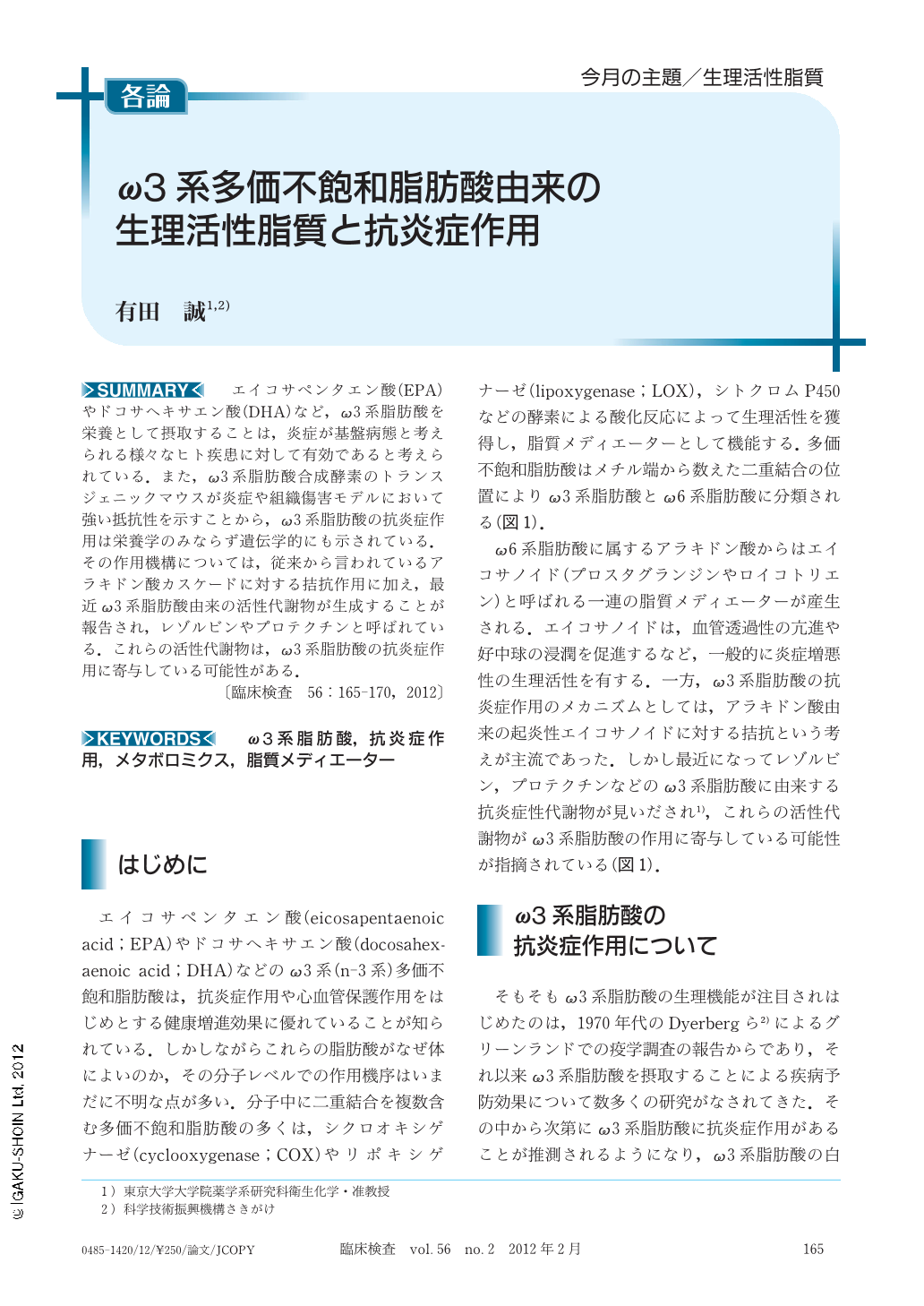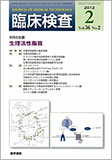Japanese
English
- 有料閲覧
- Abstract 文献概要
- 1ページ目 Look Inside
- 参考文献 Reference
エイコサペンタエン酸(EPA)やドコサヘキサエン酸(DHA)など,ω3系脂肪酸を栄養として摂取することは,炎症が基盤病態と考えられる様々なヒト疾患に対して有効であると考えられている.また,ω3系脂肪酸合成酵素のトランスジェニックマウスが炎症や組織傷害モデルにおいて強い抵抗性を示すことから,ω3系脂肪酸の抗炎症作用は栄養学のみならず遺伝学的にも示されている.その作用機構については,従来から言われているアラキドン酸カスケードに対する拮抗作用に加え,最近ω3系脂肪酸由来の活性代謝物が生成することが報告され,レゾルビンやプロテクチンと呼ばれている.これらの活性代謝物は,ω3系脂肪酸の抗炎症作用に寄与している可能性がある.
Dietary supplementation of n-3 polyunsaturated fatty acid (PUFAs) including eicosapentaenoic acid (EPA) and docosahexaenoic acid (DHA) has been held to be beneficial for human diseases in which inflammation is suspected as a key component in pathogenesis. Also, elevation in n-3 PUFA levels in n-3 desaturase (fat-1) transgenic mice that endogenously biosynthesize n-3 PUFA from n-6 PUFA led to effective protection against inflammation and tissue injury. Several possible mechanisms to explain n-3 PUFA's actions are proposed : preventing conversion of n-6 arachidonic acid to pro-inflammatory eicosanoids, serving as an alternative substrate producing less potent products, or being converted to potent anti-inflammatory mediators (i.e. resolvins and protectins). These metabolites may underlie some of the beneficial actions of n-3 PUFAs in controlling inflammation and related diseases.

Copyright © 2012, Igaku-Shoin Ltd. All rights reserved.


